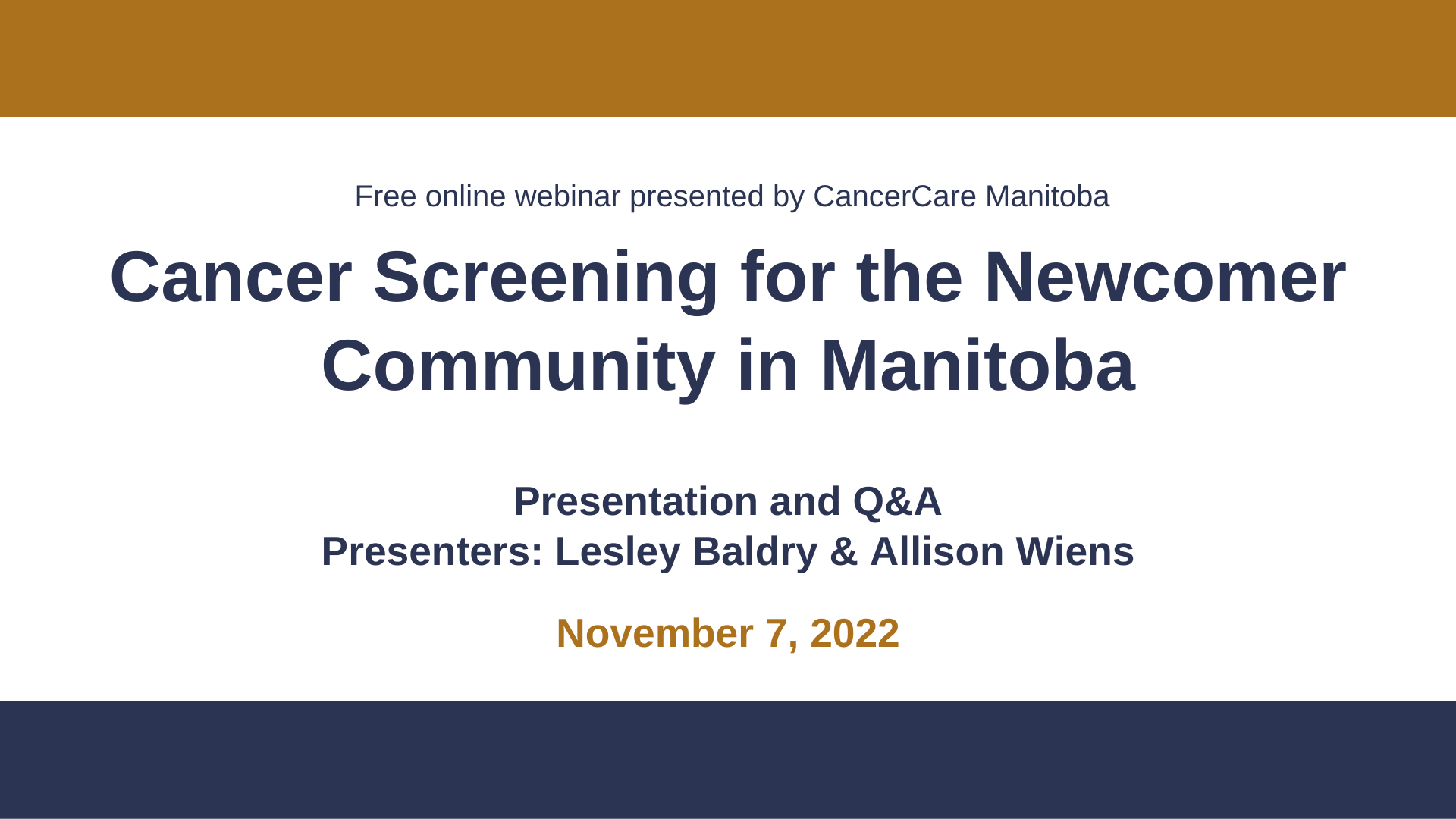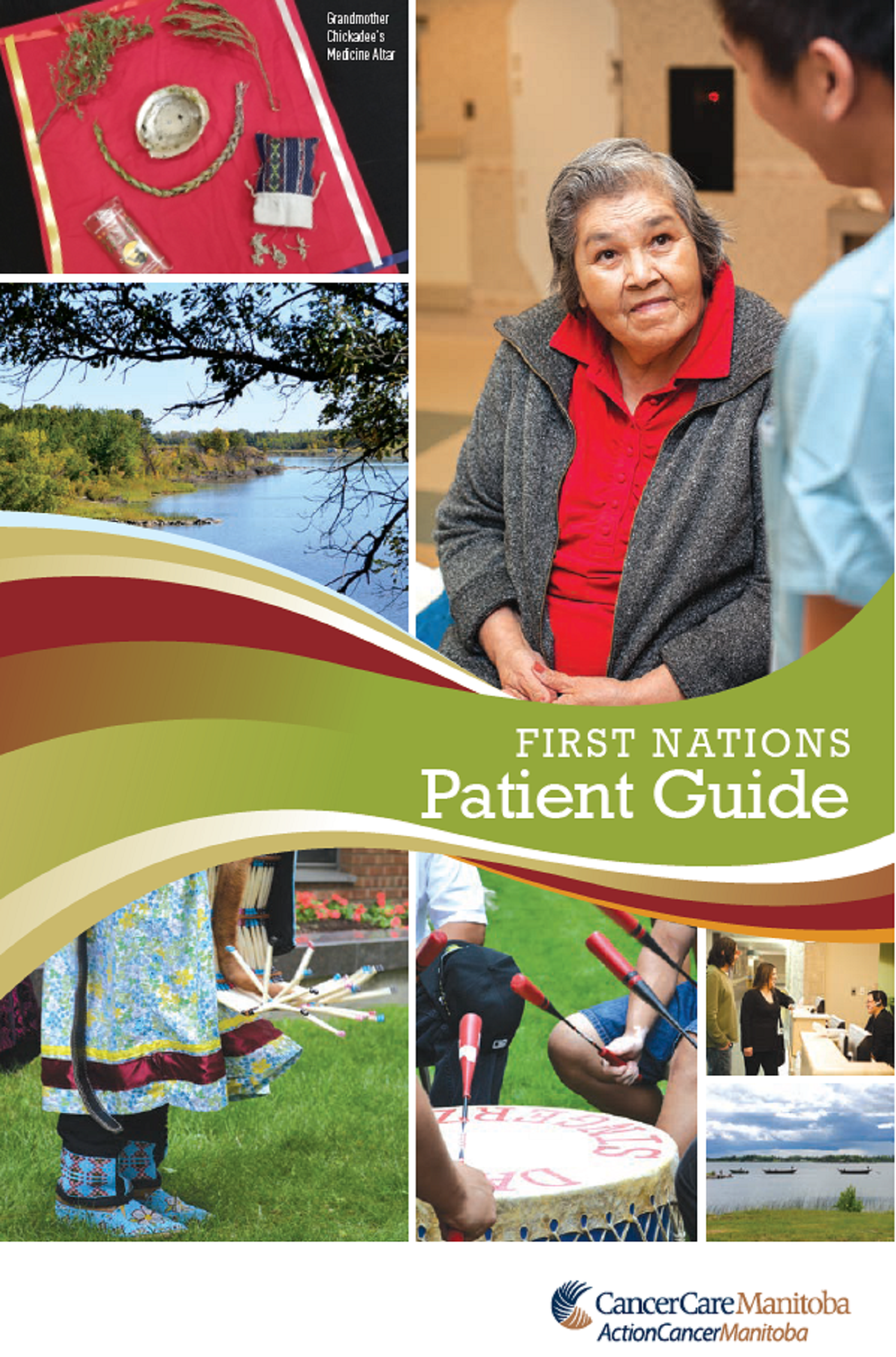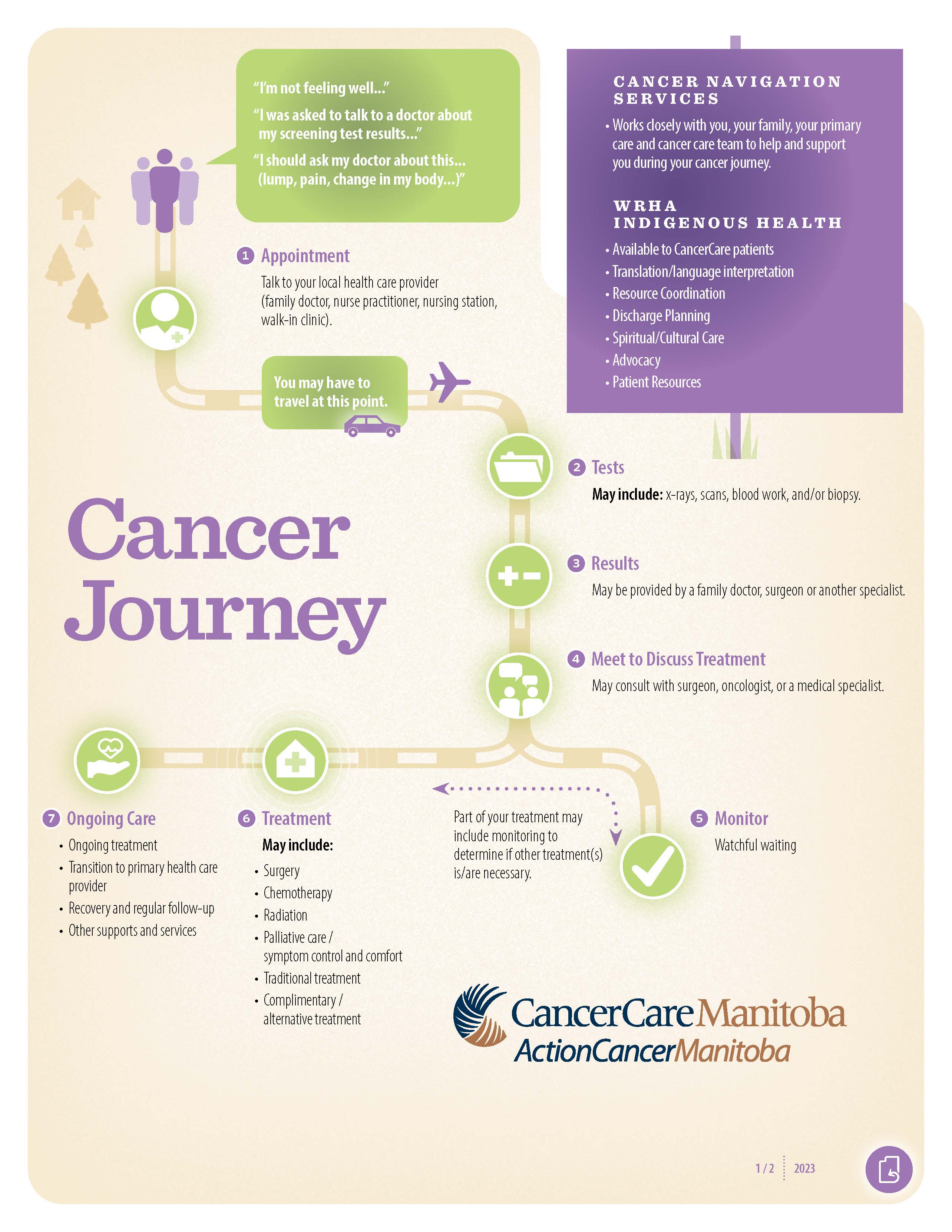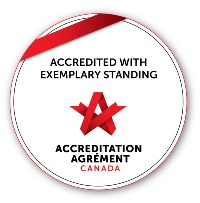Underserved Populations Program
Finding the path to better cancer care together
The Underserved Populations Program is here to help individuals who may struggle with geographic, linguistic, cultural, or other obstacles to get screened, treated, and supported for cancer.
Our team strives to:
- Support patients and families who may face additional challenges.
- Build relationships in underserved communities.
- Educate and support healthcare providers with health equity issues.
- Address system issues that cause barriers or delays.
Contact Us:
CC16-825 Sherbrook Street
Winnipeg, MB R3A 1M5
Toll-free 1-855-881-4395
changingthepath@cancercare.mb.ca
Monday - Friday
8:30 a.m. - 4:30 p.m.
The Education and Liaison Nurse works with patients, families, and healthcare providers who may have additional needs along their cancer journey.
Patients and family members can talk directly to the nurse about their journey and available resources. They can assist healthcare providers in obtaining trauma-informed, patient-centered and culturally safe services for their patients, from the point of suspicion of cancer through treatment, follow up and palliative care.
The education and liaison nurse can be reached at 204-390-6805 or toll-free at 1-855-881-4395.
First Nations Patient Guide
This handbook provides information about cancer, introduces patients to their health care team, and helps patients get ready for their first appointment at CancerCare Manitoba. This guide also lists different services for First Nations patients, including getting connected with Non-Insured Health Benefits and Health Canada to help with treatment and travel.
Cancer Journey Pathway
This infographic helps show what a cancer journey may look like for a patient and it also provides timeline information about when patients might expect to move to the next step along their journey.
The infographic is also available in the following languages:
First Nations Webinar Series
Supporting First Nations People living with cancer and their families.
Arts-based Healing - June 13, 2024
Ceremony and Traditional Ways of Healing - May 16, 2024
Caring for the Caregiver - April 23, 2024
Service Provider Panel - March 14, 2024
Grief and Loss - February 15, 2024
Medicine Wheel Teachings - January 23, 2024
Webinar Speakers
Elder Cindy O’Nabigon
Elder/Knowledge Keeper, Indigenous Health Services Northern Health Region
Cindy is a First Nations knowledge holder with the Northern Regional Health Authority proud of her heritage and deeply values her family, particularly the influence of her mother's love and guidance. In 1996, she married Philip O’Nabigon and together they have four sons whom she affectionately calls her ‘cubs’.
Cindy has been a residence counsellor at Frontier Collegiate for over 11 years, finding fulfillment in working with youth from diverse communities. She leads a girls' drum group, conducts cultural workshops, and has been involved with the Flin Flon Friendship Center and Youth Center for several years. Embracing a traditional lifestyle for two decades, Cindy finds strength and faith through ceremonies like the sweat lodge. She looks forward to sharing her experiences and teachings with students, aiming to inspire through her cultural insights.
Donna Head
BSW, RSW Indigenous Health Coordinator, Northern Health Region – Indigenous Health
Donna, originally from Cranberry Portage and now residing in Flin Flon, is the third youngest of 10 children and considers herself a true northerner. With a Bachelor of Social Work Degree from the University of Manitoba, she has had a diverse career in social work, including as a counsellor for youth and adults, a life skills coach in adult education, and a high school social worker. Since joining the Northern Health Region in 2016, Donna has served as a Mental Health Clinician and currently holds the position of Indigenous Health Coordinator. Known for her humour and dedication, Donna integrates cultural knowledge into her practice and emphasizes a strengths-based, holistic approach. She values building relationships, and collaboration and follows her mother's advice to approach interactions with humility and kindness. In her spare time, Donna enjoys family gatherings, dreams of owning a cabin, and cherishes moments with her dog Bear. She dedicates her work to her mother Irma and all caregivers who provide support and strength to their loved ones.
Elder Isabelle Morris
Elder/Knowledge Keeper, Indigenous Health Services Northern Health Region
Isabelle is from Tatasweyak CFN/Split Lake, Manitoba and resides in Thompson, Manitoba, with her husband Ernie. They have two sons, grandchildren and great-grandchildren. She has seven siblings.
She is fluent in the Cree Language and has obtained a certification in the Aboriginal Language Specialist Program from Red River Community College in Winnipeg, plus a Bachelor of Arts and Nursing from the University of Manitoba. She is honoured to have gained the Traditional Healing Ways from Elders, Traditional People, Counsellors and Family, Friends.
She is a Member of various Traditional Lodges such as Traditional Dancer in Pow Wow, Sundancer, and Helper, Sweat Lodge, Fasting/Feasting, Traditional Medicine Harvesting Healing and Tipi Teaching Lodge, and Grandmother Elder Council Lodge. She is a Traditional Bundle Carrier, a South Medicine Woman, a Northern Dancing White Buffalo Elder, and a Bear Clan.
Miriam Duff - Psychosocial Oncology Clinician, CancerCare Manitoba
Miriam Duff is a compassionate clinician who works with people affected by cancer at CancerCare Manitoba. She has a Master of Education in Counselling from the University of Manitoba and is a Canadian Certified Counsellor (CCC) and a Certified Child Life Specialist (CCLS). She has extensive experience in serving children and families at Children’s Hospital. She is also a trained teacher of Mindful Self-Compassion and a graduate of Expressive Arts Therapy, where she discovered her passion for drumming.
Miriam grew up in Northern Ontario on Treaty 9 land with parents from England and Scotland. She respects and learns from Indigenous teachings and acknowledges the historical and ongoing harms of colonization, including Residential Schools. She is dedicated to walking the path of reconciliation with others. She loves spending time with her family, drumming with the Buffalo Gals when she can, and kayaking on the LaSalle River in her red kayak.
Webinar: Cancer Screening for the Newcomer Community in Manitoba

Watch our webinar Cancer Screening for the Newcomer Community in Manitoba to learn more about breast, cervical and colon cancer screening and resources for newcomers. Presenters: Lesley Baldry, Health Educator, CancerCare Manitoba Prevention & Screening, and Allison Wiens, Education and Liaison Nurse - Health Equity, CancerCare Manitoba Underserved Populations Program.
Community Engagement Opportunities
We want to work with underserved communities and our partners in care to build relationships, trust, and sustainable solutions to reduce the burden of cancer. Our goal is to engage with patients, survivors, families, and communities to help improve the cancer journey. If you feel you have something to share with one of our advisory committees, please be in touch.
Current Committees include:
- Newcomer Advisory Committee
- Manitoba Cancer Network
CancerCare Manitoba Underserved Population Program (part of the Community Oncology Program) spoke to First Nation, Metis, and Inuit patients and family members about their experiences of being diagnosed with cancer. This video describes, from a patient’s perspective, how to deliver cancer information in a respectful way.



